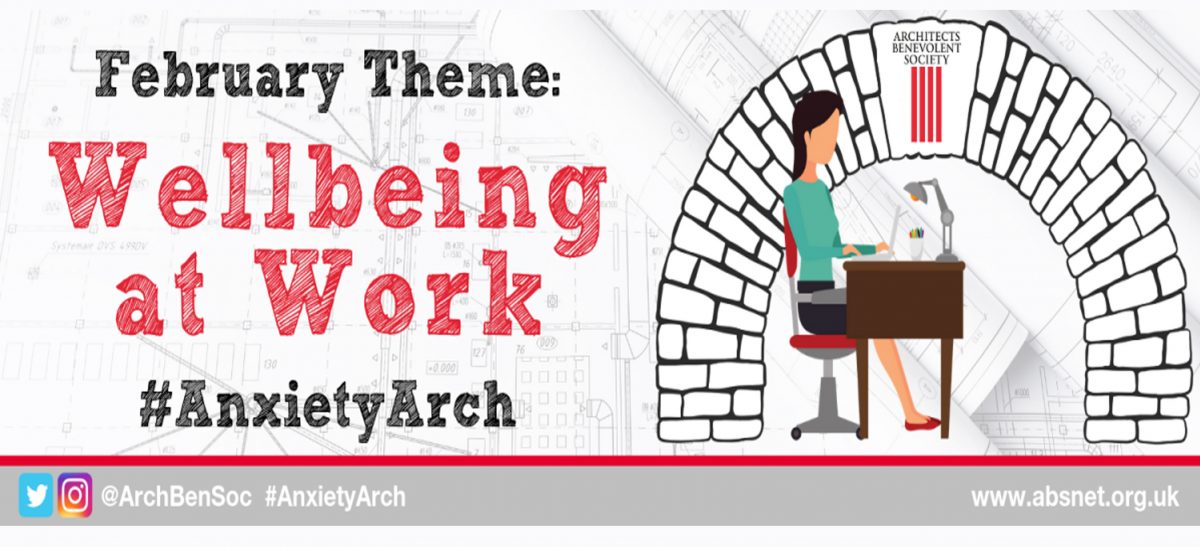Home | Our news & views |
How to promote wellbeing at work – featuring Jane Duncan

Home | Our news & views |

Jane Duncan, who set up her practice over 25 years ago, discusses her experience of wellbeing in the workplace with the ABS, highlighting what her approach has been towards promoting good practice and how leaders should move forward in championing good wellbeing in the architectural professions. She shares practical advice for both the employee and the employer, and with today being Time to Talk day we wanted to share her words with you, in the hope that it may spark conversation at your workplace.
It’s not rocket science – more neuroscience – which demonstrates how our brains react to environmental and work stresses. How odd then that despite knowing the relationship of good design, happiness and fitness to mental wellbeing, the latter is rarely discussed in our own practices.
The market in which architects operate is not going to change overnight, but the way in which we run our practices and use our time can.

Practical Advice for Organisations and Practices
As leaders in practice we can show a good example to our own staff by running successful people focussed and thus productive businesses, and charging adequately to enable decent pay packets and projects to be carried out in ‘normal’ working hours rather than depending on free overtime.
We can introduce staff to the time management skills of prioritisation of work load, and talk freely about time management tools as simple as only looking at emails in batches rather than every two minutes, and occasionally put phones away.
We can refuse to allow our staff, except in exceptional cases, to stay on beyond normal working hours. Because I started my business with a tiny baby in tow I got used to being very specific with clients about my working hours, and have pretty much stuck to that all my life – except perhaps during the RIBA Presidency (but that was definitely an exception). At 6 o’clock if I find a member of my staff still working I tend to ask whether they haven’t a home to go to!
Practical Advice for Individuals
As individuals we can use some good tips too. How about stepping away from your emails for an hour, saying no occasionally, trying to leave work at work, stopping short on trying to get perfection (great will be fine), make people wait – but tell them first, pick your battles (love this one), and look at how the Scandinavian practices work and how successful they are. The point is to think about this and do something positive. Small steps work well.
We need to work smarter not longer. Taking breaks at work, for example, doing non-work activities with colleagues, or even learning something new (even in the pub or gym) in the lunch hour, which gets us out and away from our desk, really helps. We will come back brighter, and be able to concentrate better. That’s an increase in productivity and happiness right there!
The market in which architects operate is not going to change overnight, but the way in which we run our practices and use our time can. We must care for staff and ourselves so that we can also be fit to care for the wellbeing of those people that live and work in the buildings we design. We cannot have one without the other. We need balance in all things.